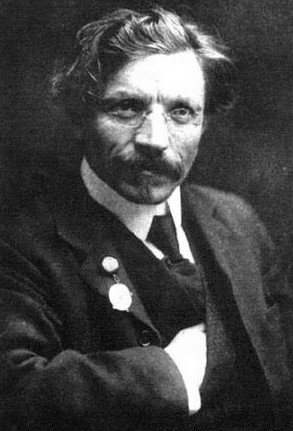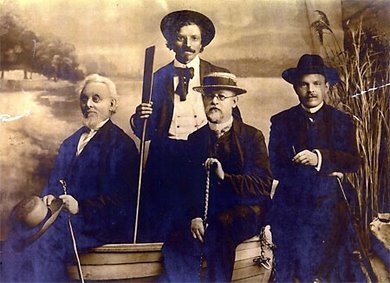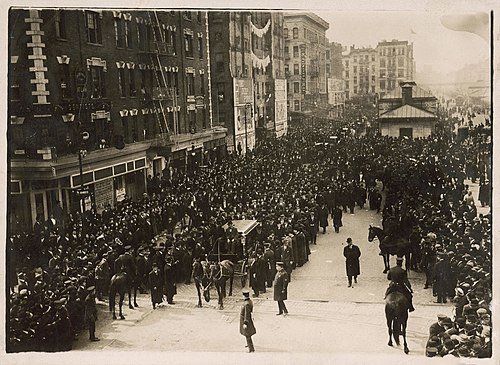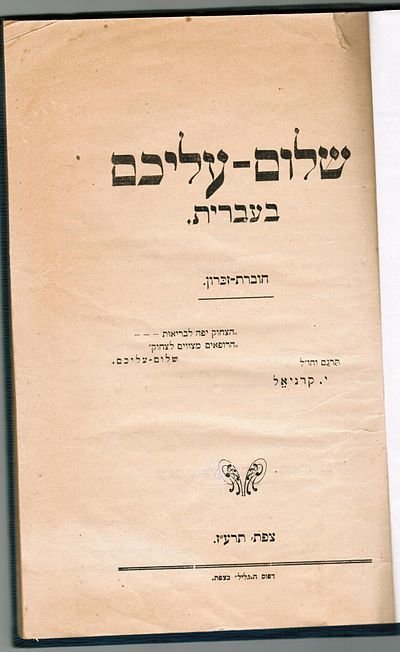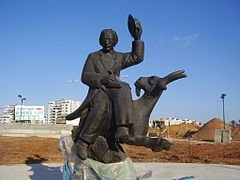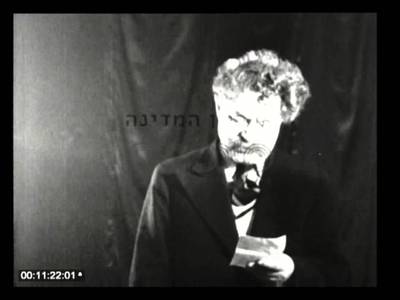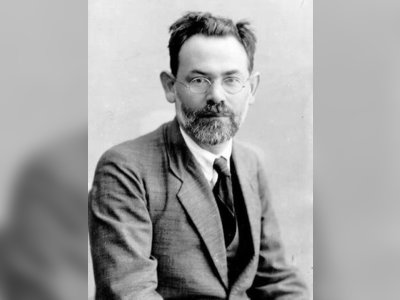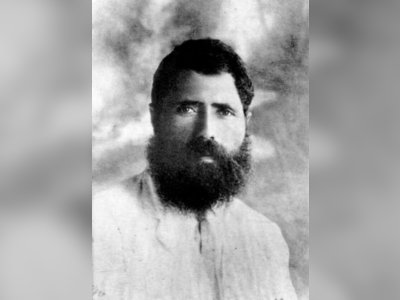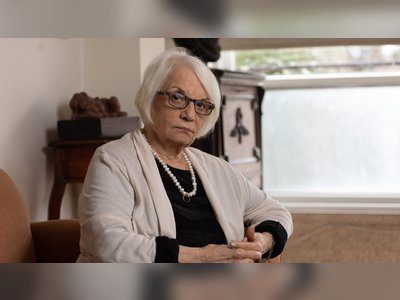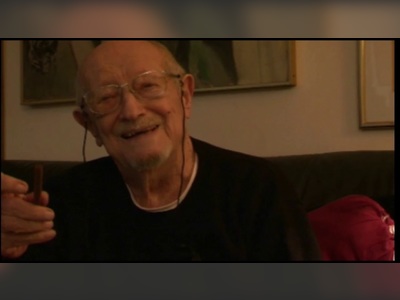Sholem Aleichem: The Yiddish Literary Giant
In the late 19th and early 20th centuries, the Yiddish literary scene witnessed the emergence of a towering figure who would come to be known as Sholem Aleichem. Born Sholem Rabinovich on March 2, 1859, in Pereyaslav, a town in the Kiev province of Southwestern Russia (now Ukraine), he would go on to become one of the most prominent Yiddish writers of his time.
Sholem Aleichem's early years were marked by migration. Shortly after his birth, his family relocated to the town of Voronkiv (often spelled Vurka), where he experienced a happy childhood. He fondly remembered those years, writing, "In Voronkiv, I spent the best years of my childhood."
This quaint town played a pivotal role in shaping his literary universe, particularly in creating the fictional shtetl of Kasrilevke, which gained renown in the literary world for its vivid characters and the depiction of Jewish life.
At the age of 11, Sholem Aleichem and his family were compelled to return to Pereyaslav, where his life took a turn for the worse. His father transitioned from being a merchant to running a roadside inn, and the children were put to work in the arduous task of maintaining the guesthouse. Tragedy struck shortly after Sholem's Bar Mitzvah when his mother, Chaya Esther, succumbed to a cholera epidemic.
His father remarried a few months later to a woman who made life difficult for the children. Sholem Aleichem's autobiographical works later shed light on the challenges he faced in this new family dynamic. His first literary endeavor, a collection of curses, arranged alphabetically, primarily focused on his stepmother.
Sholem Aleichem's education was rooted in Torah studies, and by the age of 21, he began publishing articles and short stories, initially in the newspaper "Hamelitz" and later in Yiddish pamphlets. He was multilingual, writing in Yiddish, Russian, and Hebrew, but a significant portion of his work was composed in Yiddish.
He chose the pseudonym Sholem Aleichem after publishing "Tsvi Krolik," a work that hinted at his family name, but he did not want his father to know that he was writing in Yiddish, possibly due to his father's preference for Hebrew over Yiddish.
In 1883, Sholem Aleichem married Olga Loev, the daughter of Elimelech Loev, whom he had tutored privately. Following the inheritance he received after his father-in-law's death, Sholem Aleichem ventured into business in Kyiv. In 1888 and 1889, he published two volumes titled "Di Yidishe Folks-Bibliotek: A Buch fir Literatur, Kritik un Vissenshaft" ("The Jewish People's Library: A Book of Literature, Criticism, and Science"), aimed at elevating the quality of Yiddish literature and criticizing the prevalent cheap Yiddish novels of the time. His scathing critique targeted Shmuel Rabinowitz, a prolific writer of popular Yiddish novels, in a booklet titled "Shmarts Maspt: Oder, Der Sod Fun Aln Romanen Fun Shmarts Maspt."
In 1890, Sholem Aleichem suffered financial losses in the stock market, and after settling his debts, he moved to Odessa, where he continued to write and publish several novels and stories. In 1891, he began writing the series of stories featuring "Menachem Mendel," a character that would accompany him for many years. Menachem Mendel was a humorous portrayal of a scheming Jewish merchant who constantly devised plans and schemes that often failed.
After a few years, Sholem Aleichem returned to Kyiv and engaged in trade. In 1895, he wrote the first of his "Tevye the Dairyman" stories, exploring the life of a simple Jewish milkman caught between tradition and modernity in his changing environment.
Tevye's character, full of humor despite his numerous hardships, became one of the most iconic figures in Yiddish and general literature. Sholem Aleichem also contributed short humorous stories depicting the everyday lives of Eastern European Jews, further cementing his literary reputation.
In the wake of the 1905 revolution, which was marked by anti-Jewish pogroms and targeted against the Russian Tsarist regime, Sholem Aleichem emigrated to the United States. He began traveling frequently to Eastern Europe, giving lectures and contributing to Yiddish newspapers in Europe and America.
During this period, he published two novels, "The Deluge" and "Wandering Stars," which did not achieve the same success as his earlier works. He also wrote several plays, including "The Great Prize," "The Treasure," and "It's Hard to be a Jew," some of which were only staged after his death.
In 1909, a fund was established in his honor, and the proceeds from royalties on his works were used to alleviate his financial difficulties. Despite his economic challenges, Sholem Aleichem continued writing up until his final days. He passed away on May 13, 1916, in New York City, after suffering from poor health, aggravated by the loss of his son in 1915.
Sholem Aleichem was temporarily interred at the Jewish cemetery "Mount Nebo" in Queens, New York, with the hope that he would be reburied next to his father in their hometown, Kyiv, in the future. However, historical circumstances prevented this, and he was finally laid to rest in 1921 in the "Mount Carmel" cemetery, adjacent to the "Mount Nebo" cemetery.
Sholem Aleichem's legacy endures in the hearts and minds of readers worldwide. His writings continue to resonate with audiences, evoking laughter, tears, and reflections on the rich tapestry of Jewish life in Eastern Europe. Through his characters, such as Tevye the Dairyman and Motl the Cantor's Son, he immortalized the joys and struggles of a bygone era.
Sholem Aleichem's granddaughter, Belle Kaufman, became a renowned American writer, and his great-niece, Berta Yampolsky, achieved fame as a dancer.
In his own words:
"Sholem Aleichem, you are the elevated classic of our lives, navigating through the currents and destinies of many Jewish households in the Eastern reaches of Europe. You are the wonderful storyteller of these lives [...] Your words, beloved bard, hold special significance for us now, and they cascade upon us like the riches of a treasure trove, enriching our existence. [...] Your stories have led us into the world of song enthusiasts and musicians, cantors, and minstrels [...] You have brought us into the circle of childhood days, where laughter, joy, and childlike mirth pervade the fun. [...] You have let us hear charming monologues, each delivered with a twinkle in your eye, and each one concealing within it the fate and essence of life, and in them, complete characters stand as if sculpted from silver – Menachem Mendel here, and Tevye the Dairyman, and Tevye's daughters, who dance with grace through life's events."
—Excerpt from an article by Sholem Aleichem published in the Yiddish newspaper "Folksblat," 1909.
- שלום עליכםhe.wikipedia.org
